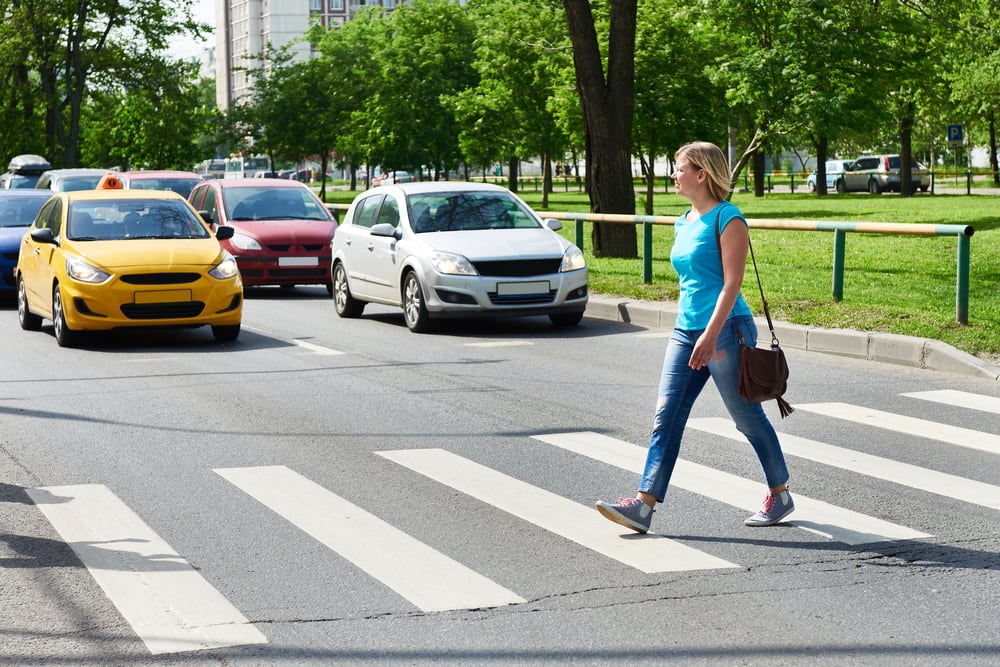

In any place where vehicles and pedestrians could meet, there have to be rules in place that determine right of way. Everyone is under a legal and moral obligation to avoid accidents that could cause damage to people and vehicles. Right-of-way laws in Connecticut are there for your protection, and that of others, so exercise common sense, and obey the laws.
Summary of Connecticut right-of-way laws
In Connecticut, the right-of-way laws are as follows:
General rules
You must obey any signals that are given by police officers, even if they are contradictory to traffic signals.
You must invariably yield right of way to any pedestrian who is in a crosswalk, whether it is marked or unmarked.
You must yield right of way to cyclists in locations where bicycle paths cross roadways.
Any pedestrian carrying a white cane or walking with a guide dog automatically has right of way, anywhere, due to their visual impairment.
Left-turning vehicles must yield to vehicles proceeding straight.
If you are entering a rotary or traffic circle, you must give the right of way to anyone already in the rotary or circle.
If you are approaching a 4-way stop, the vehicle that reaches the intersection first has the right of way.
Road safety rules of the road
If you are approaching a road from the roadside, or from an alley or driveway, you must give right of way to any vehicles that are already on the road.
You many not cause gridlock – in other words, do not enter an intersection unless you can pass through it without stopping. You may not block traffic coming from the other direction.
You must always yield right of way to emergency vehicles when you hear sirens or see flashing lights. Pull over and stop, and remain stopped unless a police officer or firefighter tells you to do otherwise.
Roundabouts/rotaries/circular intersections
- Any traffic entering a roundabout or rotary must yield to traffic already in the circle.
Common misconceptions about Connecticut’s right-of-way laws
A huge misconception that Connecticut drivers are laboring under is that the law gives them the right of way under certain conditions. In fact, the law never gives you the right of way. It requires you to yield it to other drivers. And if you insist on taking the right of way, and a collision occurs, it doesn’t matter if you were first at the intersection and someone else cut you off – you have to take all reasonable precautions to avoid an accident, including foregoing the right of way.
Penalties for failing to yield right of way
If you fail to yield right of way, your driver’s license will be assigned three points. Fines range, depending on jurisdiction, from $50 for failure to yield to a vehicle up to $90 for failure to yield to a pedestrian. You also have to factor in taxes and surcharges, so for a single violation, you could end up paying anywhere from $107 to $182.
For further information, refer to the Driver’s Manual, State of Connecticut, Department of Motor Vehicles, Chapter 4, pages 36-37.



